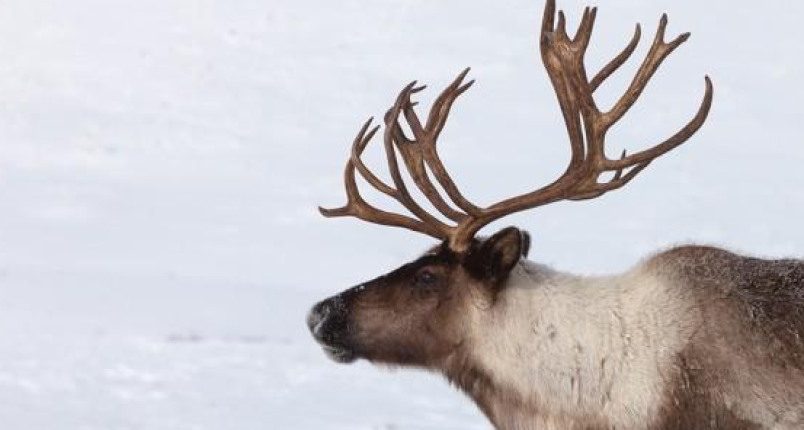Hey Momma, hey Daddy, are we there yet? When will we get there? I’m hungry; I’m thirsty; I’m tired of this boring trip!
We’re all tired, kids, but we don’t know and can’t tell when this trip will be over, if ever.
That’s the feeling I had on leaving the Northeast Roundtable in Fort St. John on the sixth day of March, 2019. It’s hard to believe but I can’t explain why it should be hard to believe. After all, we are dealing with a government run by elected officials who are just like us who elected them.
I thought on leaving local government last November that I would never again write on the caribou recovery issue. I would leave it to someone else. But now this is my second foray into that morass since I became a free agent and there is no evidence of progress or change since last March.
Am I surprised? Not really. Disappointed and not a little discouraged, but not surprised.
In fairness to the people who are frontline workers on this slippery file, the issues are highly complex with much history, numerous wrong premises, and not a lot of real science to guide. The negotiators and bureaucrats are attempting to satisfy many conflicting expectations within the treaty rights of the First Nations, the requirements of the United Nations Declaration of the Rights of Indigenous Peoples (UNDRIP) to which Canada is a signatory, the Species at Risk Act (SARA), multiple demands of environmental non-government organizations (ENGO), and the needs of the rest of the population sharing the territory with diminishing caribou.
In fairness to the First Nations with whom we now share this good land, they do have a treaty, Treaty 8, now about 119 years old. If Treaty 8 is applied the way I understood it to be interpreted at the Roundtable by a representative of one of the First Nations, it leaves very little room to sustain the way of life to which all of us have become accustomed these last 100 years or so. I did say “all” of us.
In fairness to the settlers, we trickled into this Northeast little by little over the years. Quite innocently, from the settlers’ viewpoint, we took up land according to the rules set down by the government (I am still living on the land my parents acquired more than 70 years ago). In the process, this territory was changed from a hunting-gathering environment to an agricultural-industrial environment. With population growth and related development this part of the nation has been rendered forever incapable of supporting a hunting-gathering society of any size.
For good or for otherwise, that’s the history of the area all of us now call home. Our history is no more than a continuation of the history of European settlement over the last 500 years. Right or wrong, it’s our shared history and we have to learn how to live together in peace.
We know terrible injustices have been perpetrated on the original inhabitants of the land by the seemingly unstoppable shiploads, canoeloads, wagonloads, trainloads, planeloads, of new people arriving on muleback, on horseback, or on sore and bloody foot, moving inexorably west and north – always west and north, always seeking the better life, and finding it at the expense of the ways of life of the original inhabitants of the land.
That’s our history. There’s not much we can do to rewrite the past. Actually there’s nothing we can do to rewrite the past.
But is there anything we can do to change the future? Certainly, there is, but can we do it without perpetrating further injustice on all the people of the land?
If we enact changes that result in massive job losses we are doing no one any good and we cannot be sure that the changes will benefit the caribou. All of us who live here now are dependent in some measure on agriculture, industry, tourism, and supporting services that take up space on the land base. To restrict access to the land base will result in social disruption and loss of family income without certain benefit to the caribou.
Mr. Trudeau expressed a touching concern for the potential loss of 9,000 jobs, one of which might have been his, in Quebec. We understand, Mr. Trudeau, we really do. But 9,000 jobs in Quebec would be less painful to the body politic than 500 or more in our Northeast.
I suggest that our government in Ottawa needs to revisit and reinterpret SARA in view of this clear and visible fact of biological life: the caribou are not at risk as a species. Local population units are at risk and we need to discover the real reasons for population decline before we put the human species in the area at further risk with measures that cannot be guaranteed to accomplish the stated objectives.
All that said, I confess that I do not have the final answer so I will conclude with a word from the ancients, from those who lived in the land before any of us lived here: “...how good and how pleasant it is ... to dwell together in unity.”
So I am sure there will be found a way.
Merlin Nichols is the former mayor of Chetwynd.
- Merlin Nichols, Alaska Highway News



